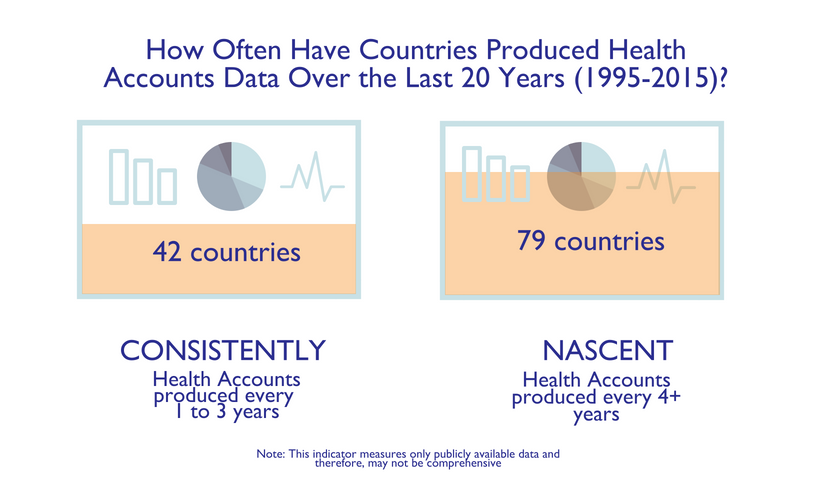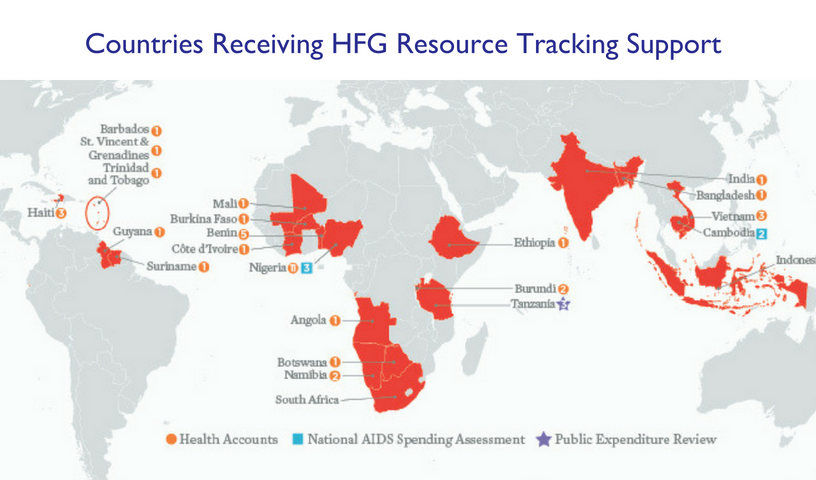In the current era of declining donor funds, threats such as Zika and Ebola, the rise of costly non-communicable disease and the pursuit of Universal Health Coverage, countries need to make their limited health resources go further.
Health resource tracking (HRT) employs a variety of tools and methodologies to measure and track the flow of funds through a country’s health system. A HRT exercise helps policymakers understand where money for health comes from, how much is spent, where it is spent, and how it can be spent more efficiently and equitably.
Click here to see examples of how countries have used Health Resource Tracking data to inform policy
Producing HRT on a routine basis is important to ensure that health expenditure information remains up-to-date and relevant to policy discussions. Routine production can also result in higher quality data, as the systems for gathering needed inputs and the technical capacity of the team improves with each round of estimations. The process of establishing HRT as an integral and sustained part of government operations is part of “Institutionalization.” Over the past 20 years, as countries institutionalize HRT, the goal is to move towards producing the data every year.


HFG’s Resource Tracking work aims to:
- simplify the production of resource tracking data
- increase use of resource tracking data for policy decisions
- improve awareness of how different resource tracking methodologies can serve countries’ needs and
- build in-country and regional capacity for resource tracking production and use.
HFG supports health resource tracking using the System of Health Accounts 2011, National AIDS Spending Assessments, Public Expenditure Reviews, and Public Expenditure Tracking Surveys. HFG’s support to countries typically consists of:
- Health resource tracking capacity building of in-country staff and regional institutions (such as Trinidad’s University of West Indies and India’s Public Health Foundation of India and PGI – Institute of Medical Sciences)
- Technical assistance to countries conducting a health resource tracking exercise
- Support to health sector actors in using the health resource tracking information to better allocate and mobilize resources for health.



